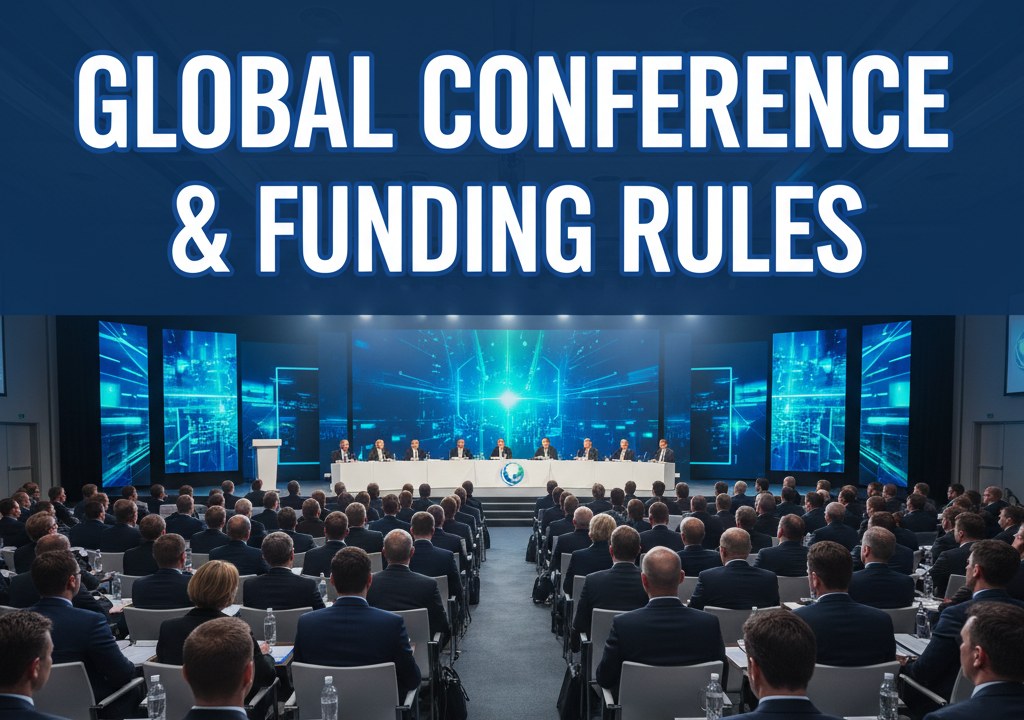Government Funding Rules and Smart Tips for Conference Participation

Attending national or international conferences can open doors to new collaborations, innovative research ideas, and career opportunities. However, many professionals and students hesitate due to the financial burden.
Fortunately, several government schemes now support conference participation through structured funding programs. Understanding these rules and learning how to make the most out of them can help participants attend events without heavy expenses.
Understanding Government Funding Rules
Government funding for conferences typically aims to promote knowledge exchange, innovation, and representation in global forums. Most ministries, including Science & Technology, Education, and Commerce, offer support to researchers, academicians, and entrepreneurs.
Key points to remember:
- Eligibility criteria often focus on academic credentials, paper acceptance, or relevance to India’s development goals.
- Applicants must apply well before the event—usually 6 to 8 weeks in advance.
- Funds are provided as reimbursement for travel, registration, and accommodation, not as upfront payment.
- A utilization certificate and a detailed report are required after attending the conference.
- Double funding from multiple sources for the same purpose is not permitted.
Popular Government Funding Schemes Around the World
Governments across the globe actively support academic and professional conference participation. Here are some of the most recognized departments and organizations provide financial assistance for conference travel:
1. United States
- National Science Foundation (NSF) Travel Grants – Offers travel support for researchers and students attending scientific and engineering conferences.
- Fulbright Program – Though primarily for academic exchange, it also supports participation in international research and academic meetings.
2. United Kingdom
- UK Research and Innovation (UKRI) Grants – Provides funding for researchers to present at international conferences relevant to UK science and innovation priorities.
- British Council Travel Grants – Assists UK professionals in attending educational and cultural events abroad.
3. European Union
- Horizon Europe Mobility Funding – Supports researchers across EU countries to participate in workshops and international conferences.
- Marie Skłodowska-Curie Actions (MSCA) – Offers mobility and conference participation grants to early-career researchers.
4. Canada
- Natural Sciences and Engineering Research Council (NSERC) Travel Supplements – Helps researchers share their work at international meetings.
- Global Affairs Canada Scholarships – Includes funding for students and professionals to attend academic and policy-related conferences overseas.
5. Australia
- Australian Research Council (ARC) Discovery Projects – Includes travel funding for researchers presenting at major conferences.
- Department of Education Mobility Programs – Offers travel support for students and academics attending global educational events.
6. India
- Department of Science & Technology (DST) International Travel Support (ITS) – Funds scientists, engineers, and researchers to present papers at international conferences.
- University Grants Commission (UGC) Travel Grants – Provides travel assistance for faculty and researchers to attend academic events abroad.
- SERB International Travel Support (Science and Engineering Research Board): For presenting papers at prestigious international events.
- AICTE Schemes: For faculty members and research scholars of engineering and higher education institutions.
- DBT Travel Grants: For scientists engaged in specific areas of scientific research.
- ICSSR and ICMR Programs: For social science and medical research professionals, respectively.
7. Singapore
- National Research Foundation (NRF) Grants – Includes provisions for conference participation as part of research funding.
- SkillsFuture Study Awards – Sometimes cover participation in training conferences and professional development programs.
Before applying, individuals should thoroughly review the eligibility criteria, funding limits, and required documentation for each program.
Smart Tips for Applicants
To ensure a successful application and a productive conference experience, applicants can follow these practical steps:
- Start early: Preparing proposals and securing approvals takes time. Begin at least two months before the event.
- Review documentation: Have your invitation letter, acceptance notice, and estimated expenses ready.
- Craft a strong justification: Clearly explain how attending the conference will benefit your research, institution, or professional growth. A focused and concise justification often makes your application stand out.
- Stay Within Budget: Review the funding cap — overspending can cause delays or partial reimbursements. Plan your travel and accommodation wisely to stay within the approved limit.
- Follow up: Once you receive the funding, confirm details like disbursement methods and reporting deadlines. A short thank-you note to the funding body also leaves a positive impression.
- Report back: Upon return, submit a concise post-event report summarizing your learnings, contacts made, and potential collaborations.
Maximizing the Conference Experience
Beyond funding, participants should focus on leveraging the event for professional growth. Networking with peers, presenting confidently, and engaging with experts can lead to lasting academic or business relationships. Sharing conference outcomes through institutional reports or online publications further enhances visibility and impact.
Government funding programs provide valuable support to help researchers and professionals engage globally. By understanding the rules, preparing meticulous applications, and following proper procedures, participants can attend conferences without financial strain and contribute meaningfully to the country’s knowledge ecosystem.
